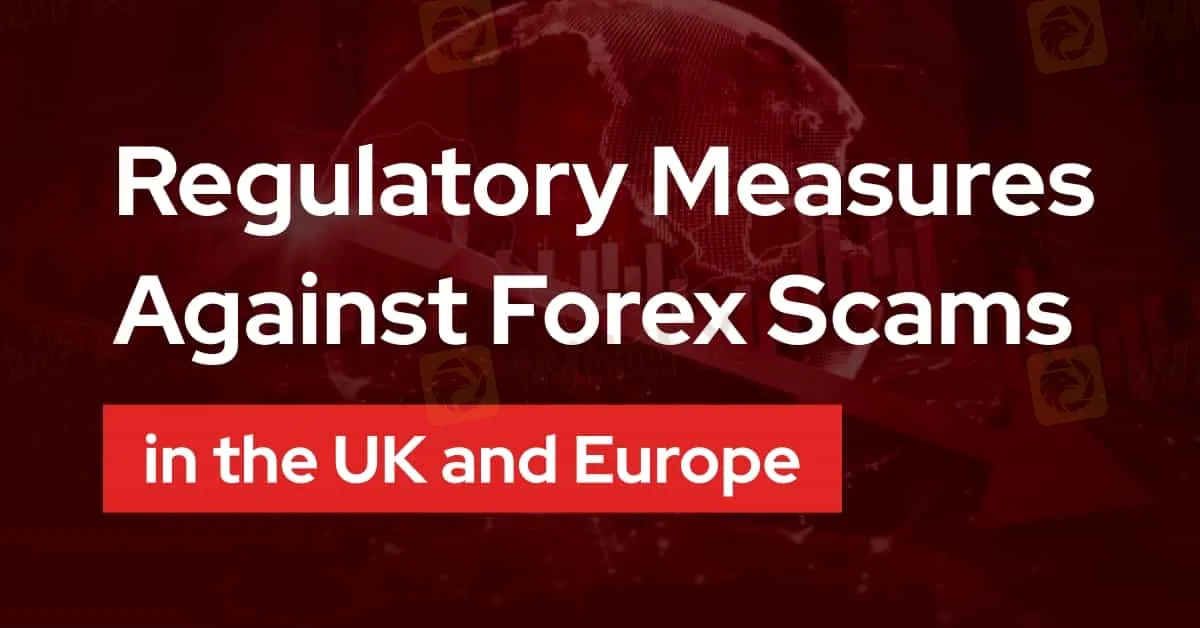简体中文
繁體中文
English
Pусский
日本語
ภาษาไทย
Tiếng Việt
Bahasa Indonesia
Español
हिन्दी
Filippiiniläinen
Français
Deutsch
Português
Türkçe
한국어
العربية
Guardians of the Market: Regulatory Measures Against Forex Scams in the UK and Europe
Abstract:In the intricate landscape of forex trading, the allure of high returns often coexists with the shadow of fraudulent practices. The United Kingdom and Europe, boasting thriving financial sectors, have not been immune to the rising tide of forex scams. This article delves into the regulatory measures implemented by financial watchdogs in the UK and Europe, exploring how these measures aim to protect investors and maintain the integrity of the forex market.

In the intricate landscape of forex trading, the allure of high returns often coexists with the shadow of fraudulent practices. The United Kingdom and Europe, boasting thriving financial sectors, have not been immune to the rising tide of forex scams. This article delves into the regulatory measures implemented by financial watchdogs in the UK and Europe, exploring how these measures aim to protect investors and maintain the integrity of the forex market.
The Battle Against Deception: Regulatory Landscape in the UK and Europe
As forex scams evolve, regulatory bodies such as the Financial Conduct Authority (FCA) in the UK and the European Securities and Markets Authority (ESMA) are at the forefront, actively implementing measures to safeguard traders. The regulatory landscape is a complex tapestry of rules and guidelines designed to enhance transparency, accountability, and investor protection.
Enhanced Oversight: A Constant Need for Adaptation
Regulatory bodies are engaged in a perpetual cat-and-mouse game with forex scammers, constantly adapting their approaches to address emerging threats. The challenges posed by technological advancements, such as online platforms and sophisticated trading algorithms used by scammers, necessitate a proactive and agile regulatory response.
Empowering Investors Through Information: Regulatory Measures Unveiled
To protect traders from falling victim to scams, regulatory bodies have implemented stringent requirements for forex brokers. These measures include mandatory licensing, regular audits, and the enforcement of transparent communication practices. By ensuring that brokers adhere to these standards, regulators aim to create a safer trading environment for investors.
A Two-Pronged Approach: Enforcement and Education
Regulators not only focus on enforcing existing regulations but also invest in educational initiatives to empower traders. This two-pronged approach aims to not only punish wrongdoers but also to prevent potential victims by raising awareness about the risks associated with forex trading and providing resources for due diligence.
Notable Cases: Regulatory Success Stories
Examining successful cases where regulators have taken swift action against fraudulent entities provides insight into the effectiveness of regulatory measures. Instances where scams were thwarted, and wrongdoers were held accountable serve as beacons of hope for investors and reinforce the importance of a vigilant regulatory environment.
WikiFX: Navigating the Regulatory Landscape
In the pursuit of a secure trading experience, resources like WikiFX play a crucial role. WikiFX offers a comprehensive platform that assists traders in verifying the regulatory status of brokers. By providing information on licensed brokers, regulatory compliance, and user reviews, WikiFX empowers traders to make informed decisions in a market rife with complexities.
Visit www.wikifx.com to access WikiFX and leverage its resources to navigate the regulatory landscape and ensure a safer trading experience.
Conclusion: A Collaborative Effort for Market Integrity
As forex trading continues to be a dynamic and evolving landscape, the collaboration between traders, regulators, and educational platforms like WikiFX becomes increasingly vital. By staying informed about regulatory measures, traders can actively contribute to the integrity of the market, fostering an environment where scams are swiftly identified and thwarted, and investors can trade with confidence.

Disclaimer:
The views in this article only represent the author's personal views, and do not constitute investment advice on this platform. This platform does not guarantee the accuracy, completeness and timeliness of the information in the article, and will not be liable for any loss caused by the use of or reliance on the information in the article.
Read more

Malaysian-Thai Fraud Syndicate Dismantled, Millions in Losses Reported
The Royal Malaysia Police (PDRM) has received 26 reports concerning the Nicshare and CommonApps investment schemes, both linked to a major fraudulent syndicate led by a Malaysian citizen. The syndicate’s activities came to light following the arrest of its leader by Thai authorities on 16 December.

North Korean Hackers Steal $1.3bn in Cryptocurrency in 2024
Over $2.2bn in cryptocurrency stolen in 2024, with North Korean hackers accounting for $1.3bn. Discover how cyber theft impacts the evolving crypto landscape.

Malaysian Influencer Detained in Taiwan Over Alleged Role in Fraud Scheme
Malaysian influencer Hu Chang Mun, widely known as Ady Hu, has been detained in Taiwan for his alleged involvement in a fraudulent operation. The 31-year-old, who was reported missing earlier in December, was located by Taiwanese authorities after suspicions arose regarding his activities.

Investment Scams in Malaysia: Telegram Tops Scammers’ List
In the first 11 months of 2024, Malaysia recorded 5,685 investment scams, with Telegram emerging as the most commonly used platform for fraudulent activities.
WikiFX Broker
Latest News
Geopolitical Events: What They Are & Their Impact?
Top 10 Trading Indicators Every Forex Trader Should Know
ASIC Sues Binance Australia Derivatives for Misclassifying Retail Clients
WikiFX Review: Is FxPro Reliable?
Malaysian-Thai Fraud Syndicate Dismantled, Millions in Losses Reported
Trading frauds topped the list of scams in India- Report Reveals
Why Do You Feel Scared During Trade Execution?
WikiFX Review: Something You Need to Know About Markets4you
Revolut Leads UK Neobanks in the Digital Banking Revolution
Fusion Markets: Safe Choice or Scam to Avoid?
Currency Calculator


